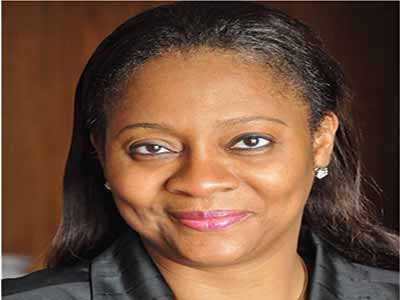
Nigeria needs to use its oil proceeds to develop other sectors of the economy while also building a knowledge-based economy. This was the submission of the Vice- President & Treasurer of the World Bank, Arunma Oteh in an interview with CNBC Africa’s Esther Awoniyi at the recently held Philip Asiodu Lecture series.
OTEH: The reason I am very keen for us to focus on us being a knowledge economy is that I really do think that our greatest asset is our people. A knowledge economy has four key elements. The first pillar is a kind of conducive environment; your institutions, macro-economy, regulatory environment but the second one focuses on education and skills and it is really focused on people. The third pillar focuses on innovation which really is based on investing in your people and the aspiration to introduce new industries and new ways of doing business. The fourth is leveraging technology. My view is that we have been endowed with natural resources, with oil, gas, with many minerals that can be exploited in commercial quantities but what is distinct about Nigerians is we are entrepreneurial, we are hard working and then we tend to focus on excellence if the incentives are right and that is what makes success of a knowledge economy. The other thing is that it is sustainable, when you invest in people, what you can only generate is each of them realizing their potential and the country realizing its potential as a nation.
AWONIYI: How can we begin to prepare for a low carbon future?
OTEH: We need to focus first on the agreement under COP21 that some governments reached in Paris in December which basically means they have agreed that they would work towards keeping things within two degrees Celsius and so what we should do is start with the plan of what that means. I like the American model because America feels this is the opportunity because they have outlined that they could create jobs if they focus on the climate change agenda, so they have clean transport, clean technology and a series of things that the government is inspiring by supporting through taxes and ensuring that they are steering people towards clean energy. For us, the starting point has to be what our vision is for what is possible, what is our plan and to outline how we will get there. The first step for me will be skills because there hasn’t been a focus in that area, if we had a strong environmental movement, we would have been on the path but we haven’t had a real focus on that so the build-up of skills is what I would suggest but the opportunity is still there and It has wider implications for an economy because then you can create jobs by focusing on a low carbon future.
AWONIYI: Nigeria is currently contending with 31 dollars per barrel what kind of economy can we have with oil at that price level?
OTEH: My view has always been that at least we have this natural resource endowment that can help us as a cash cow invest in our people, there are countries that do not have money coming in even at 31 dollars and the main point is that we have that natural resource endowment that could help us and therefore, what we should do is to make sure that we are deploying the earnings into activities that will engender long term development gain so for me, infrastructure is absolutely critical. If we can be dogged in resolving the energy problems, earning money; we should essentially make sure that the money goes into investing into things like infrastructure. I am recommending operating on zero-dollars oil revenue, use your oil revenue to invest in things that can yield gains in the future and focus your day-to-day on managing without oil. We have agriculture, we have made progress in a number of sectors, we can even focus on value addition in petrochemicals, fertilizers, there is a lot that we can do essentially to leverage oil.
AWONIYI: While Nigeria is developing its oil and gas sector, should the country at the same time begin to look into renewable energy sources?
OTEH: Absolutely. The strategy of a low carbon future is the strategy to take. Whether oil is at 150 dollars or at 30 dollars, what you should do is use it as a cash cow which means that you should focus as if you do not have earnings from oil and so focusing on renewable energy, focusing on industries that support that because that is the future. Getting ahead of the game is one strategy but I am taking more broadly about economic diversification; other sectors work for a country like ours, agriculture is a sector that produces more jobs than oil and gas so focusing on the sector means that we can have many poor people gainfully employed, if we are still spending 12 billion dollars importing food, we can immediately resolve that, if we are producing food locally; If we focus on manufacturing, it is important. It is interesting that Brazil built Embraer, one of the popular aircraft companies because in some sense, while they were pursuing an inclusive economy where everybody was broadly participating, they were also pursuing a knowledge economy where they were focusing on certain industries and planning how to invest in those industries and do more with those industries. For me, the principle is the same, focus on a knowledge economy, if you then have a conducive environment, you can choose the sector that you want to run with. Our country is rich in people and rich in people who are really good.



